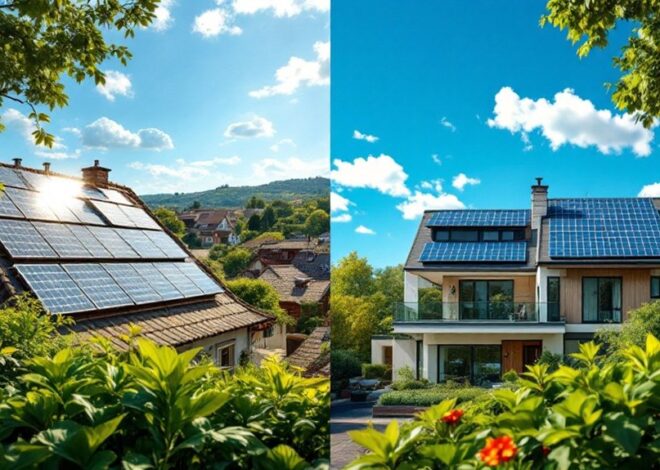
Benefits of Solar Energy for Sustainable Living
Solar energy presents a compelling case for sustainable living. It offers environmental benefits by reducing carbon emissions and promoting cleaner air. Economically, it can lower energy costs for households. Additionally, it fosters energy independence and stimulates job growth in the renewable sector. However, the broader implications of solar energy extend beyond these advantages. Understanding its full impact reveals layers of potential that could redefine community dynamics and reshape our approach to energy consumption.
Environmental Impact: Reducing Carbon Footprint
As the world grapples with the consequences of climate change, the adoption of solar energy emerges as an essential strategy for reducing carbon footprints. Solar energy systems generate electricity without releasing greenhouse gases, thereby considerably decreasing reliance on fossil fuels. By harnessing the sun’s power, individuals and communities can actively participate in mitigating global warming. The environmental benefits extend beyond carbon reduction; solar energy also conserves water, as its production requires minimal water compared to conventional energy sources. Additionally, the shift to solar reduces air pollution, leading to improved public health outcomes. As renewable energy technologies advance, their integration into daily life becomes increasingly crucial, fostering a sustainable future while preserving the planet for generations to come. Furthermore, the growth of renewable energy highlights the importance of solar energy in achieving ambitious carbon reduction targets globally.
Economic Benefits: Lowering Energy Costs
The economic advantages of solar energy are significant, particularly in lowering energy costs. Homeowners can experience reduced utility bills while benefiting from tax incentives and rebates offered by various governments. In addition, the long-term savings potential makes solar energy an attractive investment for many. Furthermore, adopting sustainable practices can enhance the overall financial benefits of utilizing solar energy.
Reduced Utility Bills
When homeowners invest in solar energy systems, they often experience significant reductions in their utility bills. By harnessing sunlight to generate electricity, homeowners can decrease their reliance on traditional energy sources, which typically come with fluctuating rates. As solar panels convert sunlight into energy, the amount of electricity drawn from the grid diminishes, directly lowering monthly bills. Additionally, many homeowners report consistent savings over time, making solar energy a financially sound choice. In some cases, the excess energy produced can even be sold back to the grid, providing additional financial benefits. Overall, adopting solar energy not only contributes to environmental sustainability but also serves as a practical solution for reducing household energy costs.
Tax Incentives and Rebates
Tax incentives and rebates play an essential role in making solar energy more accessible and affordable for homeowners. These financial benefits, often provided by federal, state, and local governments, considerably reduce the initial costs associated with purchasing and installing solar systems. Homeowners can take advantage of tax credits, which allow them to deduct a percentage of their solar installation costs from their federal taxes, effectively lowering the overall expenditure. Additionally, various rebate programs offer direct cash incentives upon installation, further easing the financial burden. By alleviating upfront costs, these incentives encourage more individuals to invest in solar energy, promoting wider adoption and contributing to a sustainable future.
Long-Term Savings Potential
Long-term savings potential is one of the most compelling advantages of solar energy for homeowners. By investing in solar panels, individuals can considerably reduce their monthly electricity bills, often resulting in savings that accumulate over decades. Utility rates are subject to increase, but solar energy provides a stable, predictable cost structure. Furthermore, many regions offer net metering, allowing homeowners to sell excess energy back to the grid, further enhancing financial returns. Initial installation costs can be offset by available tax incentives and rebates, making solar energy more accessible. Over time, the cumulative savings can surpass the initial investment, making solar energy not only an environmentally friendly choice but also a financially sound one. Ultimately, this change can lead to greater economic resilience for homeowners.
Energy Independence: Reducing Reliance on Fossil Fuels
The change to solar energy plays an essential role in decreasing fossil fuel consumption and promoting energy self-sufficiency. By harnessing renewable resources, communities can greatly reduce their reliance on non-renewable energy sources. This shift not only enhances energy independence but also contributes to a lower carbon footprint, benefiting the environment. Additionally, adopting AI-driven solutions in energy management can further optimize energy consumption and distribution, leading to more sustainable living practices.
Decreasing Fossil Fuel Consumption
As nations increasingly prioritize energy independence, decreasing fossil fuel consumption through solar energy emerges as a pivotal strategy. The change to solar power considerably reduces reliance on non-renewable resources, which are often subject to volatile market fluctuations and geopolitical tensions. By harnessing the abundant energy from the sun, countries can mitigate the environmental impacts associated with fossil fuel extraction and combustion, such as greenhouse gas emissions and air pollution. In addition, solar energy systems can be implemented at various scales, from residential rooftops to large solar farms, enabling widespread adoption. This shift not only enhances energy security but also fosters economic resilience by creating jobs in the renewable sector, thereby supporting sustainable growth and a healthier planet for future generations.
Promoting Energy Self-Sufficiency
Achieving energy self-sufficiency enhances national security and economic stability. By harnessing solar energy, communities can reduce their dependence on imported fossil fuels, which often fluctuate in price and availability. This shift promotes local energy production, allowing regions to manage their resources more effectively and mitigate the risks associated with global energy market volatility. In addition, solar energy systems can empower individuals and businesses to generate their own power, fostering entrepreneurial opportunities and stimulating local economies. As more households adopt solar technologies, they contribute to a decentralized energy grid, enhancing resilience against disruptions. Ultimately, promoting energy self-sufficiency through solar energy not only strengthens national interests but also encourages sustainable development practices that benefit future generations.
Reducing Carbon Footprint
Solar energy plays an essential role in reducing carbon footprints, greatly diminishing reliance on fossil fuels. By harnessing the sun’s power, individuals and communities can produce clean, renewable energy, thereby lowering greenhouse gas emissions associated with traditional energy sources. Shifting to solar energy decreases the demand for coal, oil, and natural gas, which are significant contributors to air pollution and climate change. Additionally, solar installations can lead to energy independence, allowing users to generate their own electricity and reduce their vulnerability to fluctuating fossil fuel prices. As more people adopt solar technology, the collective impact can lead to a more sustainable future, fostering an environment that prioritizes ecological balance and promotes cleaner air for generations to come.
Job Creation: Boosting the Green Economy
While the shift to renewable energy sources is often driven by environmental concerns, it simultaneously plays a crucial role in job creation and economic growth. The solar energy sector, in particular, has become a significant source of employment, offering diverse opportunities ranging from manufacturing and installation to maintenance and sales. This growth is not only beneficial for individuals seeking stable jobs but also stimulates local economies through increased demand for services and products related to solar technology. As more businesses and households adopt solar energy, the need for skilled workers continues to rise, creating a ripple effect that supports various industries. Ultimately, investing in solar energy contributes to a sustainable green economy, fostering resilience and long-term prosperity for communities. Additionally, digital marketing agencies are increasingly focusing on promoting solar businesses, enhancing their online presence and customer engagement.
Technological Advancements: Enhancing Efficiency
Innovations in technology have greatly enhanced the efficiency of solar energy systems, making them more accessible and affordable for consumers. Advances in photovoltaic cell design, such as the development of bifacial panels, allow for increased energy capture by utilizing both sides of the panel. Additionally, improvements in materials, like perovskite solar cells, offer higher conversion rates at lower production costs. Enhanced tracking systems also contribute, optimizing the angle of solar panels to maximize sunlight exposure throughout the day. Moreover, the integration of smart technology enables better monitoring and management of energy output. These technological advancements not only improve efficiency but also foster greater adoption of solar energy, paving the way for a sustainable future. Practicing mindfulness can also enhance our appreciation for the benefits of sustainable energy solutions.
Energy Storage Solutions: Maximizing Solar Potential
As renewable energy sources like solar become increasingly prevalent, the importance of effective energy storage solutions cannot be overstated. Energy storage systems, such as batteries and pumped hydro storage, play a vital role in maximizing solar potential by capturing excess energy produced during peak sunlight hours. This stored energy can then be utilized during periods of low sunlight or high demand, ensuring a consistent power supply. Innovations in battery technology, including lithium-ion and solid-state batteries, have enhanced energy density and efficiency, making solar energy more reliable. Additionally, integrating smart grid technology allows for better management of energy distribution, further optimizing the use of stored solar energy. Ultimately, robust energy storage solutions are essential for achieving a sustainable energy future.
Increased Property Value: Investing in Sustainability
Investing in solar energy not only contributes to environmental sustainability but also greatly increases property value. Homes equipped with solar panels often attract higher market prices compared to their non-solar counterparts. This increase in value stems from the reduced energy costs and long-term savings that potential buyers recognize. Additionally, properties with solar installations may sell faster, as eco-conscious consumers actively seek sustainable living options. The appeal of energy independence and lower utility expenses further enhances market desirability. Moreover, local governments may offer tax incentives or rebates for solar adoption, adding to the financial benefits for homeowners. Overall, the integration of solar energy systems presents a compelling case for property investment, aligning personal finance with sustainable practices.
Community Initiatives: Promoting Collective Action
While individual homeowners can benefit greatly from solar energy, community initiatives play an essential role in promoting collective action towards sustainable energy solutions. Local governments and organizations often spearhead programs that encourage neighborhoods to adopt solar technologies collectively. These initiatives can lower installation costs through bulk purchasing agreements and provide educational resources to residents. By pooling resources, communities not only enhance their energy independence but also foster a sense of collaboration and shared responsibility. Moreover, successful community solar projects can lead to increased awareness of renewable energy benefits, inspiring other neighborhoods to follow suit. Ultimately, collective action through community initiatives strengthens the commitment to sustainability while maximizing the advantages of solar energy for all participants.
Frequently Asked Questions
How Long Do Solar Panels Typically Last Before Needing Replacement?
The longevity of solar panels generally ranges from 25 to 30 years. Their durability depends on various factors, including quality, installation, and maintenance, with many manufacturers offering warranties in line with these expected lifespans.
What Maintenance Do Solar Panels Require Over Their Lifespan?
Solar panels require minimal maintenance, primarily consisting of regular cleaning to remove debris and occasional inspections to guarantee proper functioning. Most systems benefit from professional checks every few years to maintain efficiency and longevity.
Can Solar Energy Be Harnessed in Cloudy Climates?
Solar energy can indeed be harnessed in cloudy climates. Photovoltaic systems still generate electricity, albeit at reduced efficiency. Advances in technology enable effective energy capture, allowing for sustainable energy solutions even in less sunny regions.
How Do Solar Panels Affect Home Insurance Rates?
The impact of solar panels on home insurance rates varies. Some insurers may offer discounts for solar installations, viewing them as value-adding features, while others might increase premiums due to potential risks associated with the technology.
Are There Any Incentives for Installing Solar Energy Systems?
Incentives for installing solar energy systems include tax credits, rebates, and grants offered by federal, state, and local governments. These financial benefits encourage homeowners to adopt renewable energy technologies, reducing overall installation costs and promoting sustainability.
Conclusion
To sum up, the adoption of solar energy presents a multitude of advantages that contribute to sustainable living. By reducing carbon footprints and lowering energy costs, it fosters economic resilience and promotes energy independence. Additionally, the growth of the green economy through job creation and technological advancements enhances community well-being. As solar energy continues to evolve, its potential to improve property values and encourage collective initiatives underscores its essential role in a sustainable future.



